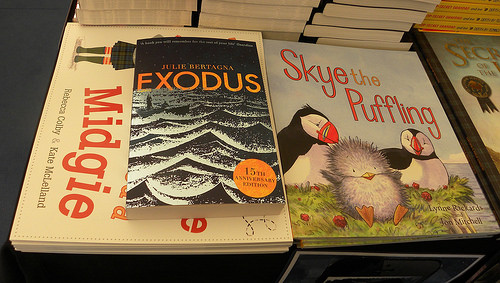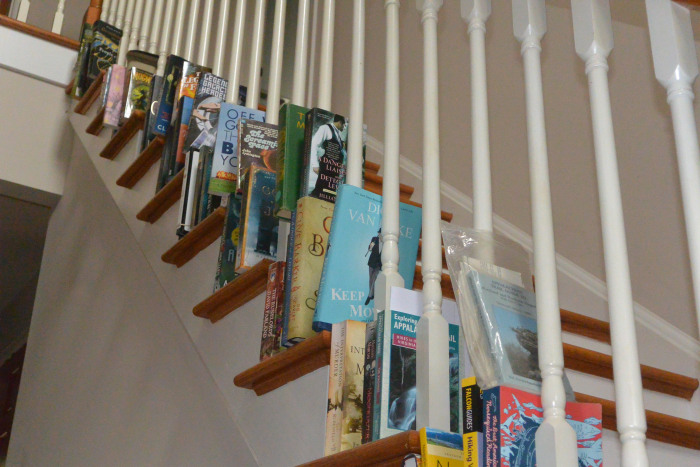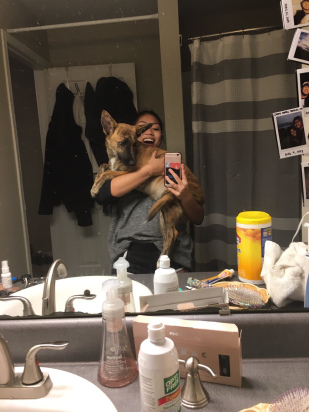I knew my place, so sat at the back for Julie Bertagna’s event with William Sutcliffe. I was glad to see there were a good number of actual, proper teenagers in the audience. They are often the hardest group to tempt to book events; neither old enough nor young enough.

Chaired by Calum McGhie, Julie and William told us the background stories to Exodus and Concentr8. In Julie’s case it was a news story about a sinking island on the opposite side of the world, which became a Scottish island in Exodus. And now, 15 years on with a special anniversary edition and a new cover, we have much more of a refugee crisis and climate change to worry about.
William had been astounded to learn from a doctor friend that parents bring their children in, demanding to have Ritalin for them, because a diagnosis of ADHD means money for the family. He was shocked to find that people would put their children on what is a kind of amphetamine, for this reason alone.

He’s aware that North London’s middle classes prefer to hide behind the familiar. It was after being the victim of a crime ten years ago that he became a mentor for a teenage boy, and it’s having known this boy so well that helped him get ‘the voice’ in his book. He feels that you can become another person by reading a book, whereas you don’t by watching a film. William said he borrowed from the 2011 riots, because it’s always good to start a book with a riot.
Julie was asked if she’d been tempted to re-write anything before the republication of Exodus, and she had, but in the end felt you can’t tamper with an already published book. Books are slower than films, and you are more in control when you read.

She decided to make the tale more immediate by writing in the third person present tense; something that some readers have had difficulty with. You change the future by how you live your life, and the young have time on their side. Julie also admitted to having rearranged bits of Glasgow to fit the plot.
William described himself as neither a leader nor a follower, and said that when faced with an alpha male group leader it is generally impossible to either say no, or to leave the group. He has made it a point to hide which character you’re meant to like or dislike, which is so common in stories these days, and this has caused some negative reviews.
When it was time for questions, Julie and William almost talked at the same time, both eager to have their say. Julie likes the dynamics of the young; things might go wrong in YA literature, but there is hope for survival. And William pointed out that there is more to a book than the last ten pages.
Asked if they have worried that no one would want to read their books, Julie said yes, but that she’d tried to write what she would have enjoyed as a teenager, whereas William believes you shouldn’t think too much about the readers.
Why YA? William had written adult novels before, but needed a book to be YA for plot reasons and then started reading more teen books and liked them. He also feels they have a longer life through school events and similar, and that in the shops all YA novels sit side by side, no matter what genre, because YA itself is a genre. Julie reckoned that children’s books was a quiet backwater where she felt safe, until Harry Potter and Philip Pullman came on the scene and things started happening.
Books to recommend brought out Louis Sachar’s Holes from William, and Julie suggested the not yet published Book of Dust by Philip Pullman.
Julie is currently working on A Girl Made of Stars, about the Hadron Collider, and she knows what dark energy is. Or so she said. And asked if she’d get on the boat [in Exodus] or stay, she’d go on the boat, if there’s room.




![These Days of Ours by [Ashton, Juliet]](/ai/101/932/101932.jpg)

